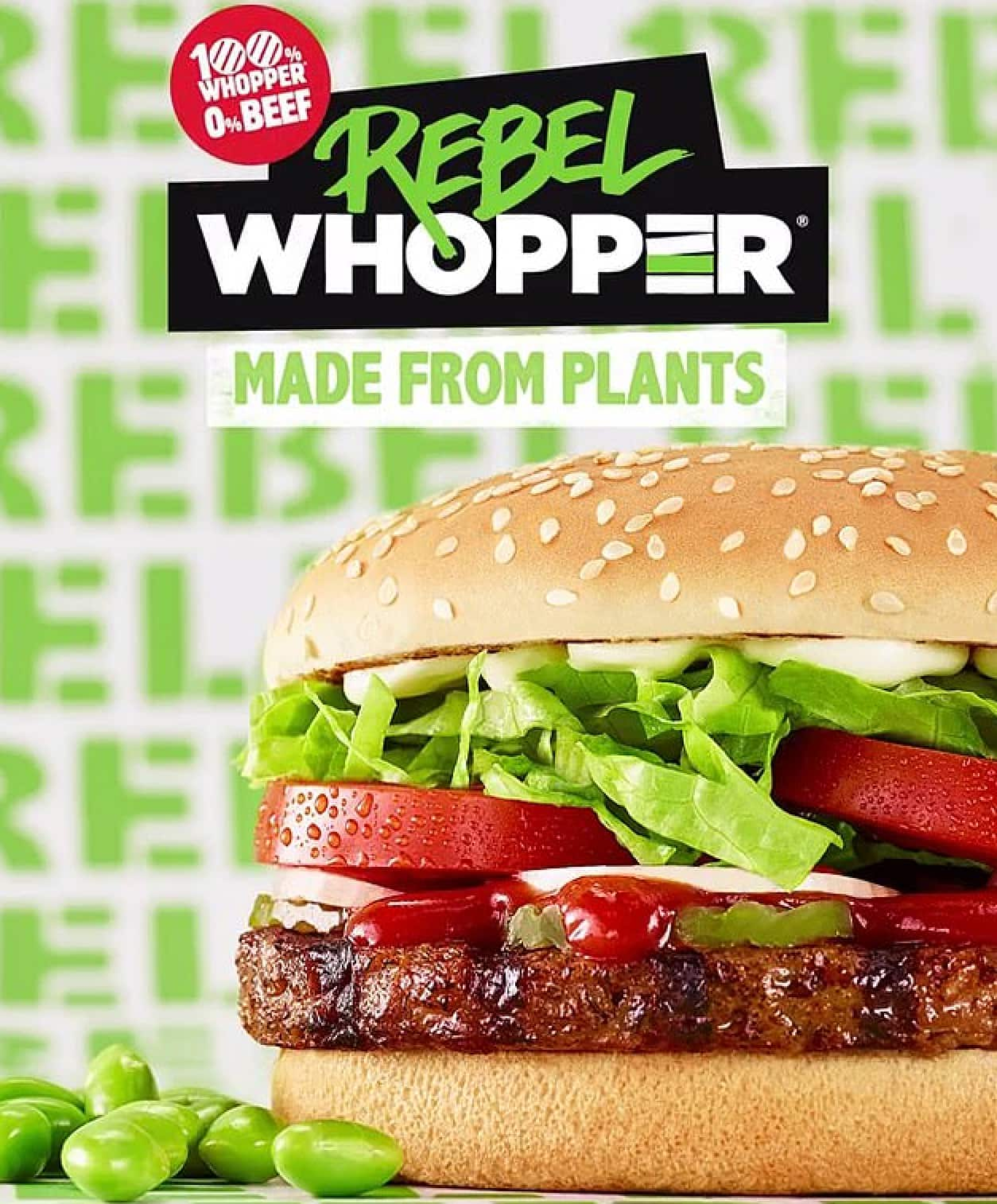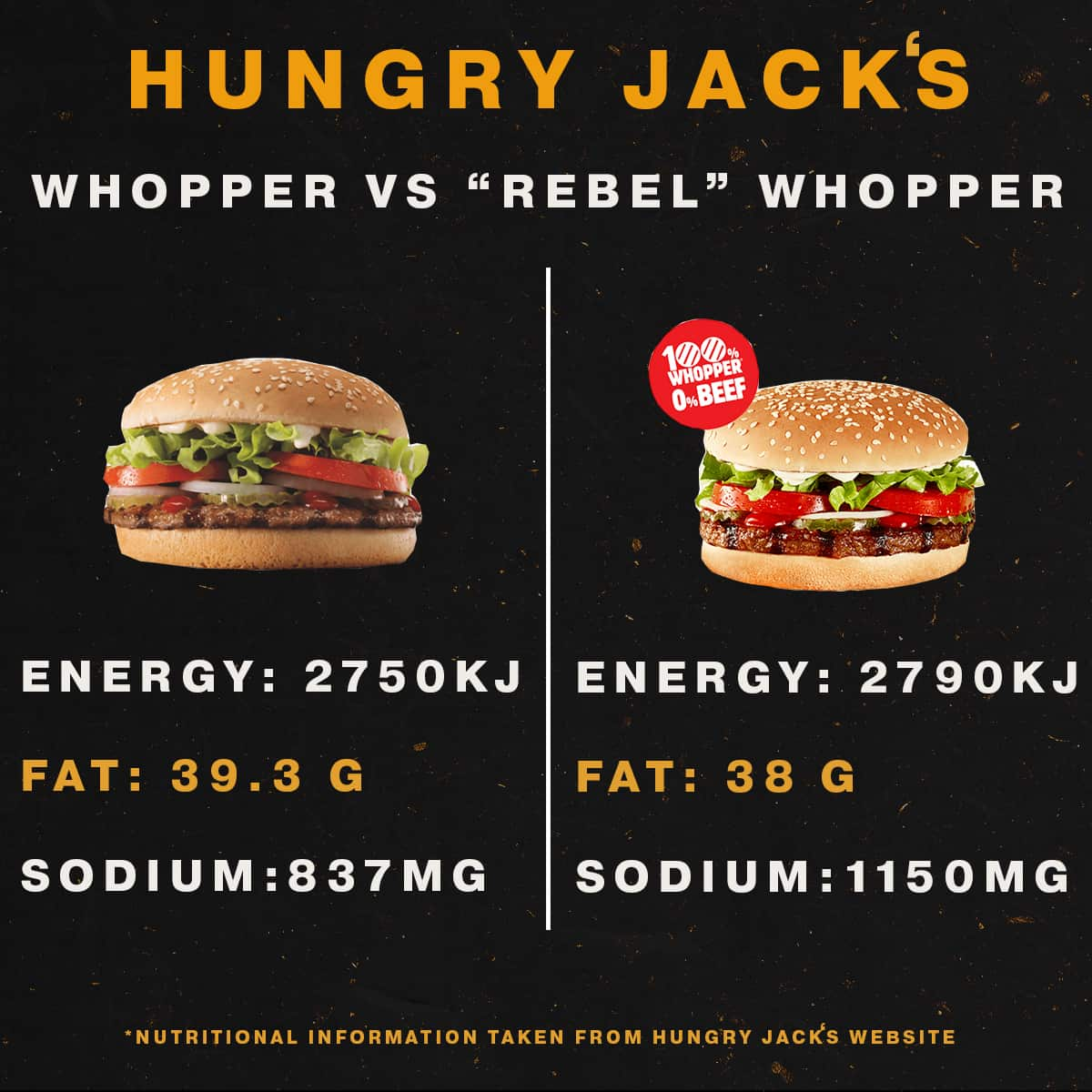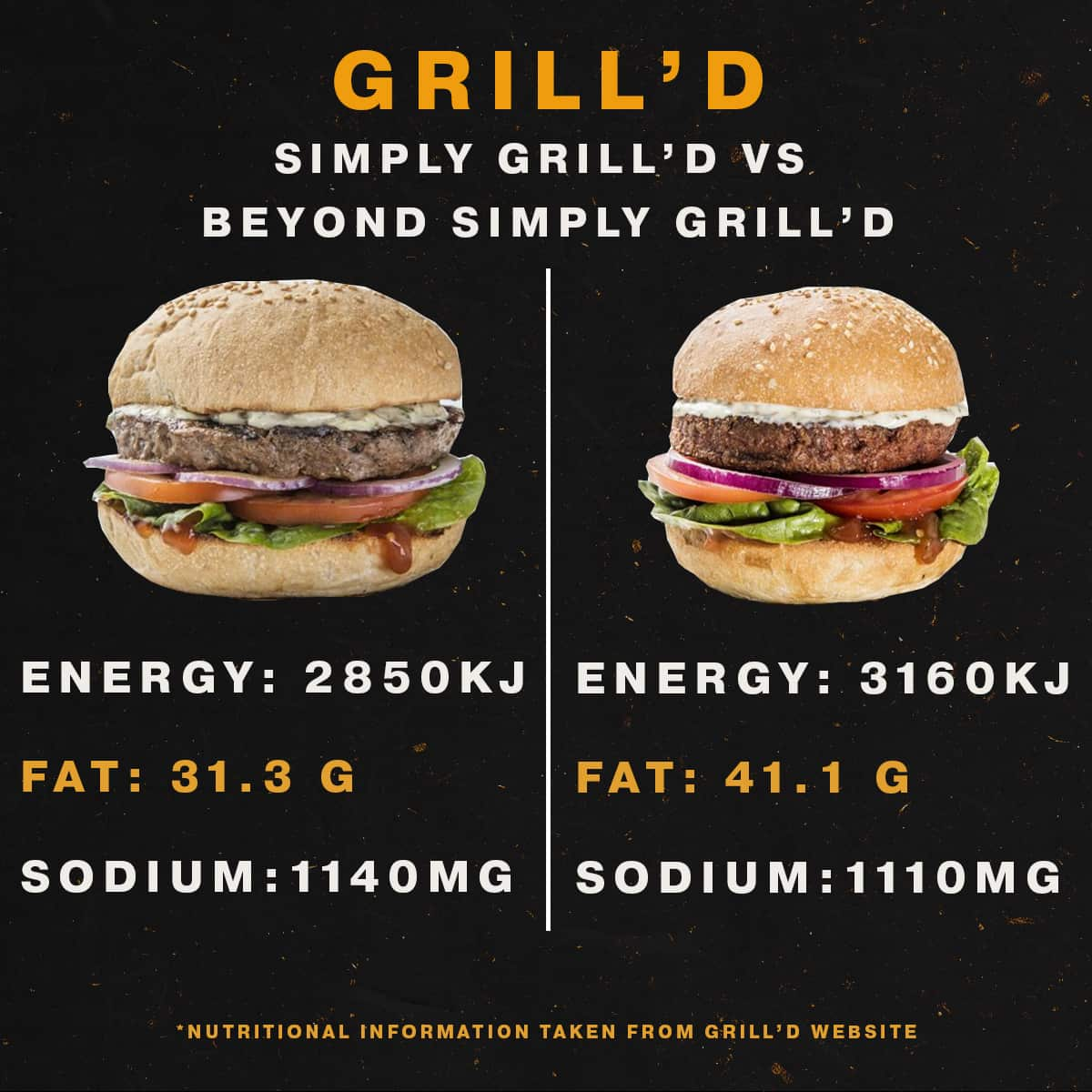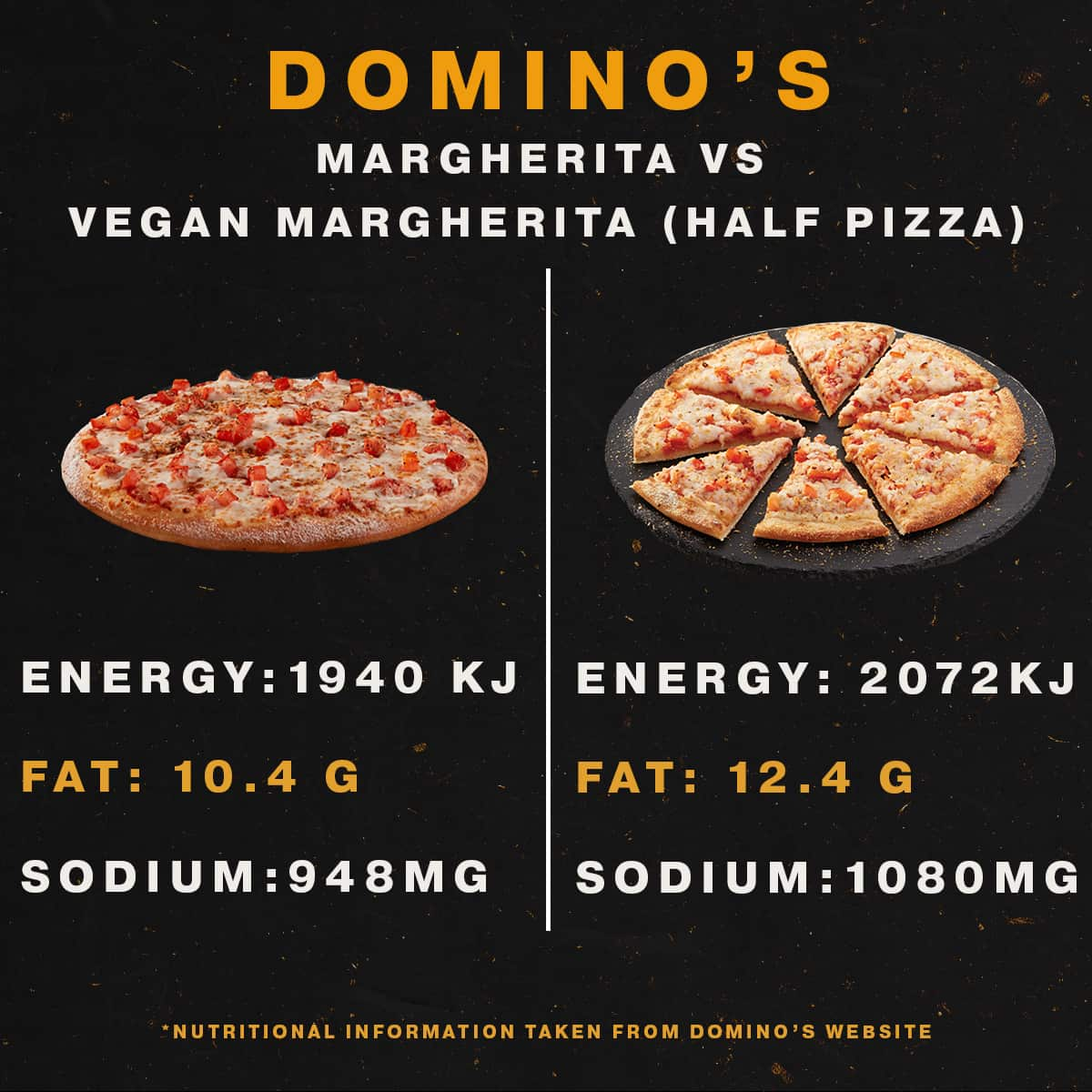The advertising material surrounding Hungry Jacks’ new plant-based ‘Rebel’ Whopper looks a bit different from their regular fare.
Bright green beans replace the trademark fiery red grills and just in case anyone forgot that this burger isn’t like other burgers there’s a note reminding consumers - it’s made from plants!

The Rebel Whopper is the latest in a long line of fast food options capitalising on the ‘health halo’ of being branded plant-based.
“Dietary guidelines and other official reports are increasingly promoting ‘plant-based’ diets (not necessarily vegetarian, but shift away from too much meat),” Professor of Public Health Mark Lawrence told The Feed.
“So, it's quite likely that consumers are translating that advice into individual foods.”
There’s just one problem with these plant-based alternatives being interpreted as healthier...they aren’t.
More often than not, the plant-based options are higher in energy and fat than their meat-filled counterparts.

For example, Grill’d’s ‘Simply Beyond’ burger comes with a full 310 more kilojoules and 10 grams more fat than its beef-based twin.

Although, where the difference really shows is in sodium content. Plant-based proteins have higher levels of salt to replicate the taste of animal meat, which means consuming hundreds of milligrams more sodium than is recommended.

“High sodium foods are associated with cardiovascular disease, obesity and a number of other chronic diseases,” Kate Sievert, a Deakin PhD candidate researching the politics of meat reduction told The Feed.
“Especially, if it’s being consumed with other high processed foods like french fries then it’s not really the ‘healthy’ alternative.”
Plant-based proteins, which replicate meat through ingredients like pea protein isolate and refined coconut oil, also fall into the category of ultra-processed foods.
“We are only just getting evidence from ultra-processed food but we do have some initial signs that they can also lead to obesity, cardiometabolic disease, cancer,” Sievet said.
“There’s even some evidence to say that they can change the bacteria in the gut microbiome.”
Eating lots of ultra processed food is not a good idea.
That’s not to say the plant-based fast-food wave is all negative.
“There are positives to these plant-based foods in terms of environmental and animal welfare concerns, they’re less water intensive to produce, they produce fewer greenhouse gas emissions,” Sievet says.
“But in terms of health outcomes I don’t think we’re quite there.”
are met alongside whole grains and other vegetables they are suitable but in a fast food context it’s probably never the healthier option,” she says.
I would probably just not eat at fast food places, to be honest.
Professor Lawrence says there is a key to successfully navigating the world of plant-based foods.
“One of the best ways public health policy might combat health halos on undeserving plant-based foods is to promote avoidance of ultra-processed foods,” Lawrence says.
“There are many plant-based foods that are ultra processed, like snack foods that are refined cereals with added sugars, salt and cosmetic additives – just because they are plant-based doesn’t mean they are healthy.”
Catch The Feed 8:30pm Thursdays and 5pm Sundays on SBS VICELAND . Connect with us on Facebook, Twitter and Instagram.
Through award winning storytelling, The Feed continues to break new ground with its compelling mix of current affairs, comedy, profiles and investigations. See Different. Know Better. Laugh Harder. Read more about The Feed
Have a story or comment? Contact Us


